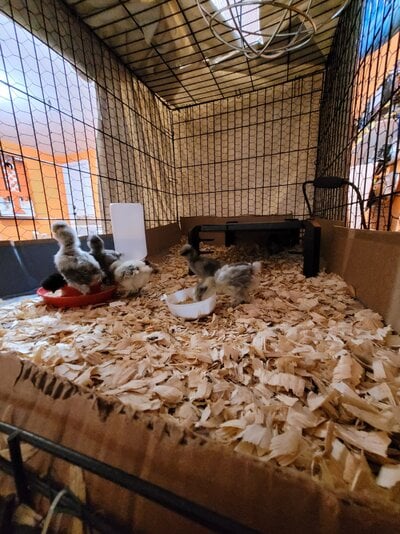Gammas Bearded Babies
Crossing the Road
This is my first time hatching eggs with incubator. And I have 8 out of 9 that hatched and all are silkies. I have them in a brooder in the garage for the time being since my new coop isn't finished yet.
My question is regarding worming medicine and immunizations. Is it a general rule of thumb to do specific things at certain ages? They are 2 weeks old today so thought I may oughta check on this sooner rather than later.
My question is regarding worming medicine and immunizations. Is it a general rule of thumb to do specific things at certain ages? They are 2 weeks old today so thought I may oughta check on this sooner rather than later.






